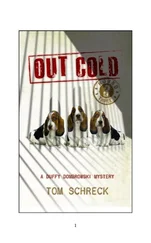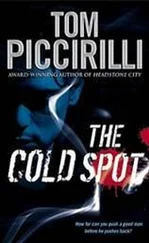I ate quickly, expecting that we would soon be on our way. But to my puzzlement Donnachad and his cliathaires appeared to be settling in to enjoy themselves. Their host promised them a hot meal as soon as his cook had fired the oven. Then he served more drinks, followed by the meal itself, and afterwards made another liberal distribution of mead and beer. By then the cliathaires had settled down to story-telling, a favourite pastime among the Irish, where — as at Earl Sigurd's Jol feast in Orkney — each person at a gathering is expected to tell a tale to keep the others entertained. All this time more travellers had been entering the room, and they too were seated and fed. By nightfall the room was full to capacity, and it was obvious to me that our little party would be spending the night at this strange house.
'Who is the owner of the house? Is he a member of Donnachad's tuath?' I asked Donnachad's servant.
He was already drowsy with tiredness and strong drink. 'Doesn't even come from these parts originally. Set up here maybe four years ago, and is doing very well,' the old man replied with a gentle hiccup.
'You mean he sells food and drink to travellers, and is making his fortune?'
'No, not making his fortune, spending his fortune,' the old-timer answered. 'He's made his fortune already, cattle farming somewhere to the north, I think. Now he's earning a much higher face price and he well deserves it.' I thought the old fellow's wits were fuddled and gave up the questions. There would be a better time to solve the mystery in the morning.
In fact next morning was not the right time to ask questions either. Everyone had fierce headaches, and the sun was already high before we were ready to set out on the road again. I loitered, waiting for Donnachad to pay our host for all the food and drink we had consumed, but he made no move to do so, and our host seemed just as good-natured as when we first arrived. Donnachad muttered only a few gracious phrases of thanks and then we rejoined his men, who were trudging blearily forward. I sidled across to the elderly servant and asked him why we had left without paying. 'You never pay a briugu for hospitality,' he answered, mildly shocked. 'That would be an insult. Might even take you to court for looking to pay him.'
'In Iceland, where I come from,' I said, 'a farmer is expected to be hospitable and give shelter and food to travellers who come to his door, particularly if he is wealthy and can afford it. But I didn't see any farming near the house. I'm surprised that he doesn't move away to somewhere a bit more remote.'
'That's precisely why he's built his house beside the road,' explained the old man, 'so that as many people as possible can visit him. And the more hospitality he dispenses, the higher will rise his face price. That's how he can increase his honour, which is much more important to him than the amount of wealth he has accumulated.'
What the briugu would do when all his hoarded savings ran out, he did not explain. 'A briugu should possess only three things,' concluded the old man with one of those pithy sayings of which the Irish are fond, 'a never-dry cauldron, a dwelling on a public road and a welcome for every face.'
We arrived at Donnachad's tuath in the second week of Beltane, the month which in Iceland I had known as Lambfold-time. After trudging halfway across Ireland in the mud with Donnachad and his slightly shabby band, I was not expecting Donnachad's home to be very grand. Even so, its air of threadbare poverty was flagrant. His dwelling was merely a small circular building with walls of wattle and daub and a conical thatch roof, and the interior was more sparsely furnished than the briugu's roadside hostel. There were a few stools and benches, and the sleeping arrangements were thin mattresses stuffed with dried bracken, while the beaten-earth floor was covered with rushes. Outside were some cattle byres, a granary and a small smithy. There was also a short line of stables of which Donnachad was proud, though there were no horses in them at the present moment.
From the conversation of his cliathaires I gathered that Donnachad and his warriors had gone to fight alongside the Irish High King not from loyalty, but in the hope of bringing back enough booty to improve the hardship of their daily lives. The land on which their clan or fine lived was unproductive at the best of times, being waterlogged and boggy, and there had been so much rain during the last three summers that their ploughings had been flooded and the crops ruined. At the same time a recurring murrain had afflicted their cattle herds, and because petty kings like Donnachad and his chief farmers counted their wealth in cattle, this loss had brought them very low. The victory at the weir of Clontarf, as the battle was now being called, had been the only cheerful event in the past five years.
Donnachad put me to work as a field labourer, and he treated me fairly, even though I was a slave. He allowed me rest time at noon and in the evening, and the food he provided - coarse bread, butter and cheese, and an occasional dish of meat - was not much different from his own diet. He had a wife and five children, and the homespun clothes they wore were a sign of their very reduced means. Yet I never saw Donnachad turn away any stranger who came to the farm — the Irish expectation of hospitality extended farther than the briugus - and twice during that summer I was called in as a house servant when Donnachad entertained his clansmen at the banquets which they expected from a man with his log n-enech. The food and mead, I knew, were almost everything that Donnachad held in his storerooms.
That summer in the open air, herding cattle, minding sheep and pigs, making and mending fences, changed me physically and mentally. I filled out and grew in strength, my back healed, and my command of the Irish improved rapidly. I found I had a gift for learning a language quickly. The only disappointment was that my injured hand still troubled me. Though I flexed and massaged it, the fingers remained stiff and awkward, and it was a particular handicap when I had to grip a spade handle to cut and stack turf for Donnachad's winter fire or grapple with boulders that we pulled from the rough fields and heaped into boundary walls.
The harvest was poor but not disastrous, and soon afterwards I began to notice that Donnachad was showing signs of gathering anxiety. His normally cheerful conversation dried up, and he would sit for an hour at a time, looking worried and distracted. In the night I woke occasionally to hear the low murmur of voices as he talked with his wife, Sinead, in the curtained-off section of the house they called their bed chamber. In the scraps of their conversation I often heard a word I did not know — manchuine — and when I asked its meaning from Marcan, the elderly servant, he grimaced. 'It's the tax Donnachad must pay to the monastery in the autumn. It's levied every year, and for the past five years Donnachad has not been able to pay. The monastery allowed him more time, but now the debt has grown so large that it will take years to clear, if ever.'
'Why does Donnachad owe money to a monastery?' I asked.
'A small tuath like ours must have an over-ruler,' Marcan replied. 'We are too small to survive on our own, and so we pledge allegiance to a king who can give us protection when we need it, in a local war or a dispute over boundary lands or something of the sort. We give the over-king our support, and he gains in honour if he is acknowledged as over-king to several tuaths. Also he supplies us with cattle which we look after for him. At the end of the farming year we give back an agreed amount of interest, in goods such as milk and cheese or calves, and we do some service for him.'
'But how does a monastery get involved in all this?'
Читать дальше








